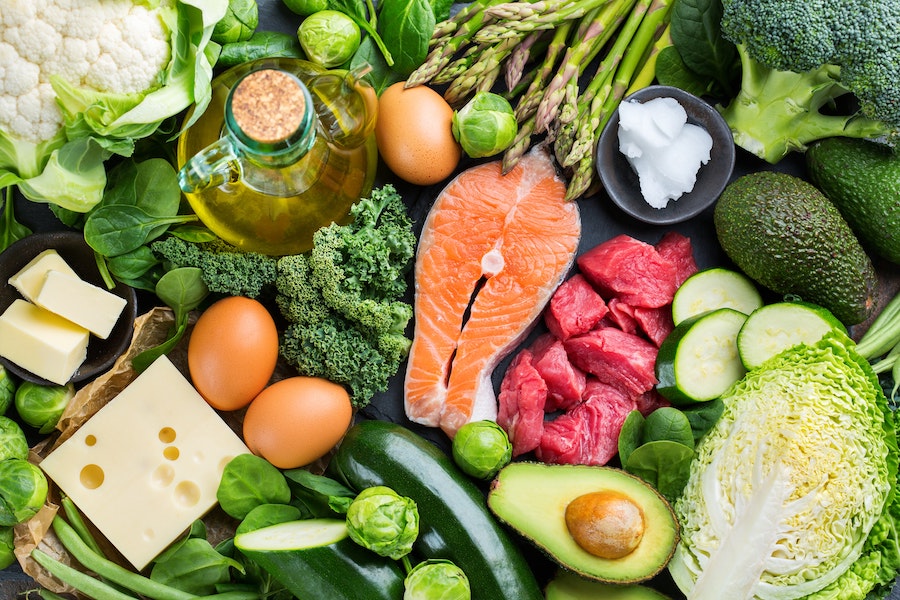5 foods to reduce your risk of stroke
We already know our lifestyles play an important role in our risk of suffering a stroke – and now a major new study suggests eating certain foods could play a significant part.
The study – one of the largest of its kind to date – looked at how consuming certain foods affects two different types of stroke: ischaemic stroke (the most common type), which happen when an artery supplying blood to the brain is blocked by a blood clot, and haemorrhagic strokes, which occur when a blood vessel ruptures, causing a bleed in the brain and reducing blood-flow to surrounding brain cells.
The research, carried out by an international team led by a team at Oxford University, looked at more than 400,000 men and women from nine European countries.
According to their findings, eating more fruit and vegetables, dietary fibre and dairy is linked with a lower risk of ischaemic stroke. The study also suggests higher consumption of eggs could be linked to a higher risk of haemorrhagic stroke – although the findings around the benefits of eating plenty of fibre, fruit and veg, etc were deemed most important.
Look at your lifestyle overall
Dr Richard Francis, head of research at the Stroke Association, says: “We know a healthy balanced diet can reduce the risk of stroke already, and this study found different foods were linked with different types of stroke.”
However, although studies like this can be useful, it’s important to remember that being healthy is never about ticking one box – having a healthy lifestyle overall and a balanced diet is crucial.
“Your risk of stroke depends on a number of different things too, such as blood pressure and levels of physical activity,” Francis adds. “Although this research found specific foods may be linked to risk of stroke, it’s better to look at your eating and drinking habits overall. If you’re concerned about your stroke risk, talk to your GP.”
The Stroke Association stresses that one of the best ways to help prevent a stroke is to eat a healthy diet, along with exercising regularly, maintaining a healthy weight and avoiding smoking and drinking too much alcohol. These measures can help prevent arteries becoming clogged, high blood pressure and cholesterol – all key risk factors for stroke, which is a leading cause of death and disability.
Rates are on the rise, with experts warning an estimated one in four people will suffer a stroke in their lifetime. And while the majority of strokes occur in older people, the average age is decreasing, with more than a third (38%) of first-time strokes now occurring in middle-aged adults aged 40-69.
Here are five types of food that could help reduce your stroke risk…
1. Fruit and vegetables
The new study suggests the association between fruit and veg and stroke risk might be linked to their fibre content. They could also be beneficial because they provide micronutrients, such as potassium, which has been shown to reduce blood pressure, and folate, which may help reduce stroke risk in people with high blood pressure. Fruit and veg are also a major source of dietary nitrates, which are thought to have blood pressure-lowering properties.
2. Dairy products
The high calcium and potassium content of dairy products such as milk, cheese and yoghurt might also have a role in stroke prevention. Trials suggest dairy products, milk tripeptides, or milk protein supplements, might help lower blood pressure, with a consequent reduction in stroke risk.
3. Fibre
The new study found every 10g increase in fibre consumption per day was associated with a 23% reduced ischaemic stroke risk. Eating high-fibre foods, such as wholegrain cereals, brown rice or grains and whole wheat couscous, can help reduce blood cholesterol and blood pressure.
4. Oily fish
Scientists have found eating two servings a week of oily fish, such as salmon, trout or mackerel, can help reduce the risk of stroke. A 2012 international study concluded that eating two to four servings of oily fish a week was linked with a 6% lower risk of stroke, compared with eating one portion or less every week. This may be connected to the omega-3 fatty acids in oily fish, which can help prevent blood clots and lower blood pressure.
5. Garlic
The British Heart Foundation says some research shows eating garlic can help reduce blood pressure, although it points out the research was based on people taking garlic supplements, which were likely to amount to much more than the garlic in meals. However, garlic can help add flavour to meals without needing to add salt – and too much salt is a major cause of high blood pressure, and in turn a significant cause of stroke. Guidelines dictate , generally, we shouldn’t eat more than 6g (a teaspoon) of salt per day.
The Press Association
Latest posts by The Press Association (see all)
- Here is the full playlist for the King’s Music Room show - March 10, 2025
- 7 simple habits to keep your kidneys happy and healthy - March 10, 2025
- A guide to the best trees for glorious cherry blossom - March 10, 2025
- Dancing On Ice finalists to battle it out in bid to be crowned winner - March 9, 2025
- 3 anti-inflammatory recipes for a healthy start to spring - March 8, 2025




















